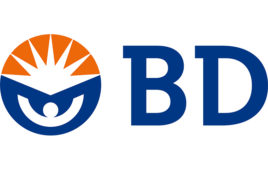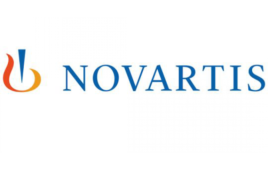
Image courtesy of Pexels
While the medical product supply chain has always been subject to vulnerabilities, those weaknesses were laid bare early in the COVID-19 pandemic. Drug and medical device supply chains have historically been susceptible to factors such as a lack of supplier redundancy, components, active pharmaceutical ingredient (API) or finished product manufacturers. But pandemic-driven sourcing and workplace disruptions magnified these pain points, resulting in the ongoing problems that have persisted for the past two years.
Although the root causes are complex and the possible solutions numerous, important developments at the U.S. Food and Drug Administration (FDA) have led to increased transparency about drug and medical device shortages. Although this transparency is a promising starting point for formulating short- and long-term supply chain solutions, strong policy development, planning and stakeholder buy-in across sectors will be necessary to achieve meaningful changes.
Root of Change: The Coronavirus Aid, Relief, and Economic Security (CARES Act)
Enacted on March 27, 2020, the CARES Act contained important changes impacting the medical product industry by enhancing the FDA’s authorities in several ways.
For example, manufacturers of APIs, finished drug products and medical devices that are considered life-supporting, life-sustaining or critical during a public health emergency must now report to FDA any permanent discontinuation or interruption in product manufacturing, the reasons for it, and (for an interruption) the potential duration. The CARES Act also requires API and finished drug product manufacturers of these critical drugs to implement a “redundancy risk management plan” that includes an evaluation of risks to the supply chain for each establishment that makes the API or drug product. Entities that manufacture drugs and that must currently register with FDA must now also report annually on the amount of product manufactured by the entity for commercial distribution. FDA must establish and maintain a current list of devices that are in shortage in the U.S. Each of these new statutory authorities brings the need for the FDA to implement the change and for industry to comply with the change.
Subsequently, both the Trump and Biden administrations issued executive orders providing that FDA take further measures to address medical product supply chain challenges. For example, on August 6, 2020, President Trump signed “Executive Order on Ensuring Essential Medicines, Medical Countermeasures, and Critical Inputs are Made in the United States.” This executive order required the FDA to identify a list of essential medicines and other products to have on hand in appropriate doses in an emergency.
Shortly after taking office, President Biden signed “Executive Order on America’s Supply Chains” on February 24, 2021, which required a 100-day supply chain review by the Secretaries of Commerce, Energy, Defense, and Health and Human Services that identifies supply chain risks and proposes policies to address them. The resulting report, “Building Resilient Supply Chains, Revitalizing American Manufacturing, and Fostering Broad-Based Growth,” was released on June 8, 2021. In general, the report acknowledges that the causes of supply chain disruptions across sectors are diverse and need to be addressed industry by industry. It also recognizes that supply chain globalization remains important because onshoring all manufacturing would be neither achievable nor desirable. In the case of APIs and finished drug products, the report addresses some of the root causes of supply chain challenges and recommends such broad actions as boosting local production, fostering international cooperation, building emergency capacity, promoting international cooperation, and partnering with allies.
Implementing Change: FDA Actions
As a result of the new CARES Act requirements and the executive orders signed by the previous and current administrations, FDA has taken strides to increase transparency about medical product supply chain diversity. These are important first steps at gathering information to understand the scope of the problem. However, impactful responses to these supply chain disruptions will require solid policies and plans about how best to use the information gathered.
Some of FDA’s actions in response to the enactment of the CARES Act and executive orders include the following:
- On October 30, 2020, FDA announced that it had published a list of drug and biologic essential medicines, as well as drug, biologic, and medical device medical countermeasures and critical inputs. FDA also identified the criteria that it used to develop these lists, which are available to the public and subject to public comment. FDA considers these essential medicines to be the products needed in acute care medical facilities that focus on short-term treatment for severe injuries or illnesses, as well as urgent medical conditions.
- FDA has created public information intended to help medical device manufacturers determine whether they must report a device shortage. According to FDA, the list identifies devices that it believes are critical to public health during the pandemic, including such items as infusion pumps, needles and syringes, and various types of personal protective equipment. The public can comment on this list of devices.
- In October 2021, the Agency released both draft and final guidance documents about how to file annual reports containing the amount of each drug product that was manufactured, prepared, propagated, compounded, or processed for commercial distribution. FDA has stated that calendar year 2020 and 2021 reports should be submitted no later than February 15, 2022 and May 16, 2022, respectively.
- The Agency is formulating guidance for industry on the required risk management plans for medical products that are life-supporting, life-sustaining, or critical during a public health emergency.
- In January 2022, FDA released a draft guidance document about notifying FDA when a device is permanently discontinued or its manufacturing is interrupted.
Conclusions

Barbara Binzak Blumenfeld
All of these efforts collectively demonstrate the renewed recognition that supply chain protection and enhancement is a critical effort worthy of the time and investment involved. Many of these efforts since the emergence of COVID-19 are geared towards gathering important information to better understand the source of the problems. FDA’s actions are one major component of this process. While these are important first steps, committing the resources to make the necessary changes that safeguard the availability of drugs and medical devices will require buy-in and compliance from numerous stakeholders.
Barbara A. Binzak Blumenfeld, Ph.D., Esq., is a shareholder in the FDA & Biotechnology practice group at Buchanan Ingersoll & Rooney PC in Washington, DC. Barbara helps clients make and execute strategic decisions about FDA-regulated product approvals. She leverages her unique background, integrating science and biomedical ethics into her legal practice to create true value for her clients. She assists clients with FDA regulatory matters arising before, during, and after product approval and marketing. She has worked on virtually all types of FDA-regulated products, including human and veterinary drugs, biologics, medical devices, cell and gene therapies, and combination products.





Tell Us What You Think!